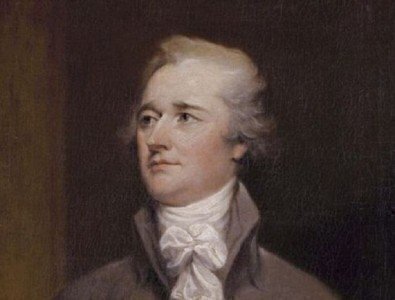How different would America have been without the hurricane that disfigured the Caribbean island of St. Croix in late August 1772? Without it, Alexander Hamilton may never have emigrated from there to New York City and indelibly shaped this country’s history.
Hamilton, 17, was a self-taught clerk for a business that traded goods between the French West Indies and America. Despite his lack of formal education, he wrote with precocious verve. In a letter to his father, James Hamilton, young Alexander called the hurricane that arrived on August 31 a “sufficient to strike astonishment into angels.”
The letter was then published in the Royal Danish American Gazette. “O ye who revel in affluence see the afflictions of humanity and bestow your superfluity to ease them,” the letter pleaded, moving a group of island businessmen to bestow their blessing on Hamilton. They sent him to North America for a proper education—and a reversal of fortune worthy of a classic fable.
Five years before, when he was 12, his mother died—this, after his father had already abandoned their common-law family (a divorce kept his mother from marrying again). Alexander was effectively an orphan and broke.
Five years later, when he was 22, after success at King’s College (now Columbia University), Hamilton became an aide-de-camp to General George Washington and, because of the eloquence of his prose, the voice of the general in letters that directed the Revolutionary War.
Hamilton was transformed “from an insecure outsider to a consummate insider,” Ron Chernow wrote in his authoritative biography, Alexander Hamilton. The man excelled at feuding with others who shaped the country: Washington, Madison, Jefferson, and Adams, as well as Aaron Burr, who ultimately killed Hamilton in a duel before he reached 50.
Hamilton was also unbending in pursuing his vision of America as a glorious nation. With Madison, he played a major part in securing a Constitution calling for a strong national government. He also helped get it ratified over fierce opposition from many who preferred that the states maintain the upper hand—especially in New York.
“To the People of the State of New York,” Hamilton wrote at the beginning of The Federalist, the collection of essays he edited and helped write to overcome the state’s anti-Federalist campaign against the Constitution. Hamilton helped persuade 13 anti-Federalists to change their votes at the last minute. New York narrowly ratified America’s fundamental law, by a 30-to-27 vote.








